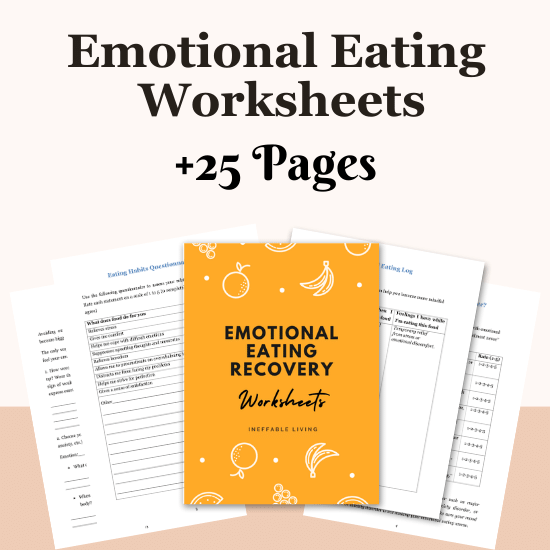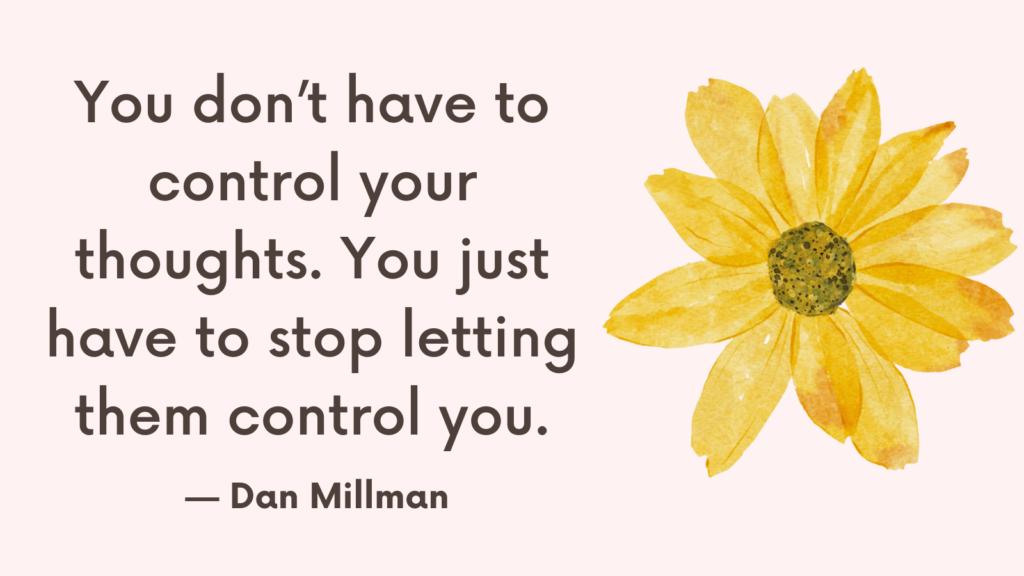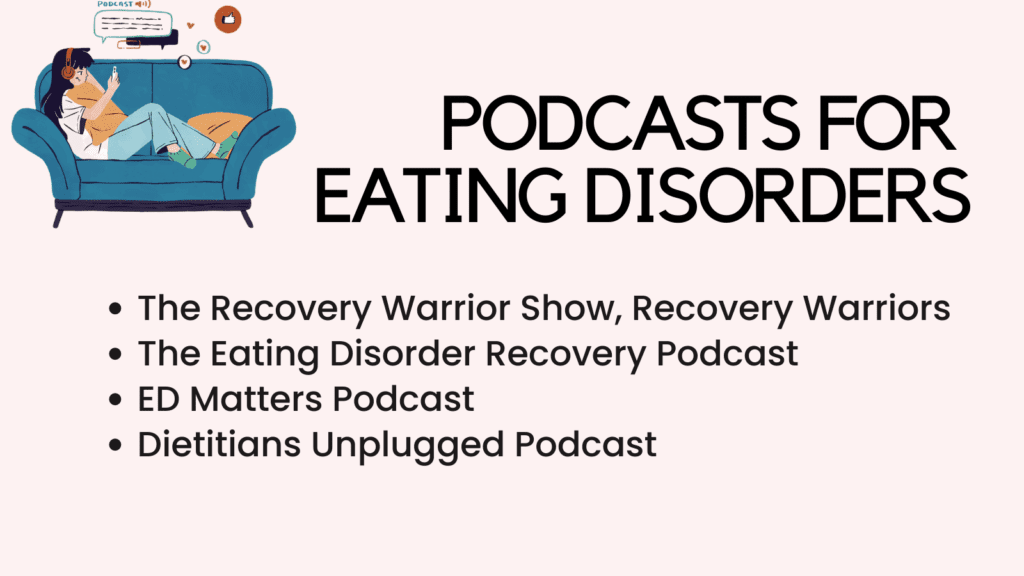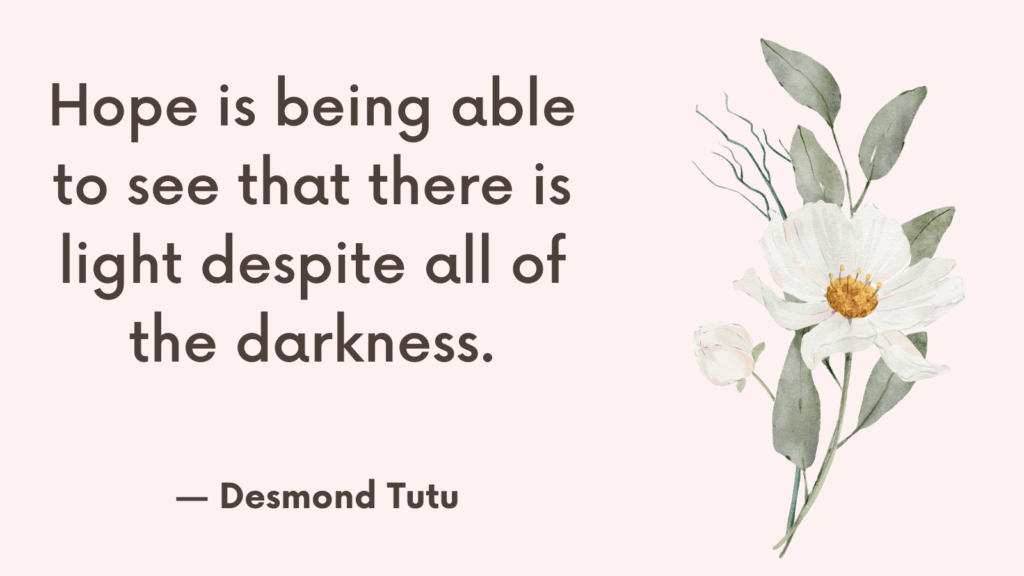In this post, you’re going to find out why you feel guilty after eating as well as how to stop food guilt.
Why Do I Feel Guilty After Eating?
It’s important to recognize that feelings of guilt surrounding eating behaviors can stem from a complex interplay of psychological, social, and cultural influences, and addressing these factors can be pivotal in fostering a healthier relationship with food.
Here is an exploration of the potential causes of feeling guilty after eating, along with strategies for promoting a more positive and balanced approach to nourishment.
1. Internalized Beliefs
Individuals may internalize societal messages and cultural ideals regarding body image, beauty standards, and “acceptable” eating behaviors.
These deeply ingrained beliefs can lead to feelings of guilt when deviating from perceived norms or expectations.
2. Perfectionism and Control
Perfectionistic tendencies and a desire for strict control over food intake can contribute to heightened guilt associated with eating.
Individuals may feel as though they have “failed” in adhering to self-imposed rules or dietary restrictions, triggering a sense of shame and self-blame.
3. Emotional Associations
Emotional associations with specific foods or eating behaviors can evoke guilt, especially in instances where individuals attach moral judgments to their dietary choices.
This may stem from past experiences, cultural conditioning, or personal beliefs about “good” and “bad” foods.
Related: What NOT To Say To Someone With An Eating Disorder? (& What to Do Instead)
4. Body Image Concerns
Body dissatisfaction and a preoccupation with weight or appearance can intensify feelings of guilt related to eating.
The act of consuming food may become intertwined with negative self-perceptions, leading to heightened emotional distress.
5. Dieting History
Previous experiences with restrictive diets or disordered eating patterns can lay the groundwork for enduring feelings of guilt around food.
These patterns may perpetuate a cycle of internalized shame and a distorted relationship with nourishment.
6. Social Comparisons
Comparing one’s eating habits to those of others, particularly in the age of social media, can fuel feelings of inadequacy and guilt.
Witnessing curated portrayals of “ideal” diets or lifestyles may exacerbate self-criticism and guilt surrounding one’s own eating choices.
Related: 20 Eating Disorder Journal Prompts To Support Your Recovery
7 Steps to Stop Food Guilt
1. Identify and Restructure Negative Beliefs
Engage in cognitive restructuring techniques to identify and reframe unhelpful beliefs surrounding food and guilt.
Examine the origins of these beliefs, challenge their validity, and work towards formulating more balanced and compassionate perspectives.
The following are some common negative beliefs:
- Eating certain foods makes me a bad person.
- Enjoying food means I’m being selfish.
- I don’t deserve to enjoy certain foods.
- I’m weak if I give in to temptation.
- Food is my enemy.
- I should always choose the lowest-calorie option.
- My worth is tied to my ability to resist food.
Here are some questions you can use to challenge these negative beliefs:
- What evidence do I have that supports or contradicts this belief?
- How might someone else view this situation or belief?
- What impact does this belief have on my overall well-being and happiness?
- What would I say to a friend who expressed this belief about themselves?
- Is there a more balanced or compassionate way to view this situation?
- What are the potential long-term effects of holding onto this belief?
- Are there exceptions or moments when this belief does not hold true for me?
- How does this belief align with my values and aspirations in life?
- Am I holding myself to an unrealistic standard or expectation with this belief?
- What would be a more constructive and empowering belief to replace this one?
Using these questions as a guide, you can start to challenge and reevaluate your negative beliefs about food, ultimately fostering a more positive and nurturing relationship with eating.
2. Practice Self-Compassion
Cultivate self-compassion by extending kindness and understanding towards oneself in moments of food-related distress.
Emphasize self-acceptance and realistic expectations, recognizing that no individual is immune to occasional deviations from idealized eating patterns.
Related: What Is A Distorted Self Image & How To Build A Positive One?
3. Embrace Mindful Eating
Incorporate mindful eating practices into daily routines, focusing on present-moment awareness of sensory experiences, hunger cues, and emotional triggers.
Mindful eating encourages a non-judgmental attitude towards food and fosters a deeper connection with the nourishment process.
Here’s a simple exercise you can try to practice mindful eating:
- Choose a single piece of food, such as a raisin, a small piece of chocolate, or a slice of fruit.
- Take a few moments to observe the food item. Notice its color, texture, shape, and any unique features it may have.
- Bring the food item up to your nose and take in its aroma. Notice any scents or fragrances that arise.
- When you’re ready, take a small bite of the food, but don’t chew it just yet. Pay attention to the sensations in your mouth – the taste, temperature, and texture of the food.
- Begin to slowly and deliberately chew the food, focusing on the physical act of chewing. Notice how the flavor and texture evolve as you continue to chew.
- Pay attention to the urge to swallow and allow yourself to do so when it feels natural.
- Take a moment to reflect on the experience. What did you notice about the food that you hadn’t before? How did it feel to eat slowly and mindfully?
4. Diversify Food Choices
Encourage the exploration and inclusion of diverse foods in one’s diet, promoting a sense of variety and enjoyment without attaching moral judgments to specific food items.
5. Negotiate Social Influences
Navigate social situations and external influences that may trigger food guilt by setting boundaries, communicating assertively about one’s needs, and reframing societal pressures related to body image and dietary norms.
Related: How To Break Emotional Eating? Top 8 Powerful Ways To Stop Comfort Eating
6. Reevaluate Social Media Consumption
Critically assess and curate social media content to limit exposure to influencers or messages that perpetuate unrealistic or harmful ideals related to food and body image.
7. Support Groups
Explore the option of joining support groups or communities focused on promoting positive body image and healthy relationships with food.
Connecting with individuals who share similar experiences can provide validation and encouragement.
Related: Top 3 Eating Disorder Relapse Triggers

Conclusion
In conclusion, addressing and overcoming food guilt involves a holistic approach that encompasses cognitive-behavioral strategies, behavioral adjustments, environmental considerations, and access to professional support.
By integrating these evidence-based strategies, individuals can work towards fostering a more positive, balanced, and compassionate relationship with nourishment, ultimately reducing the grip of guilt and shame surrounding eating behaviors.



